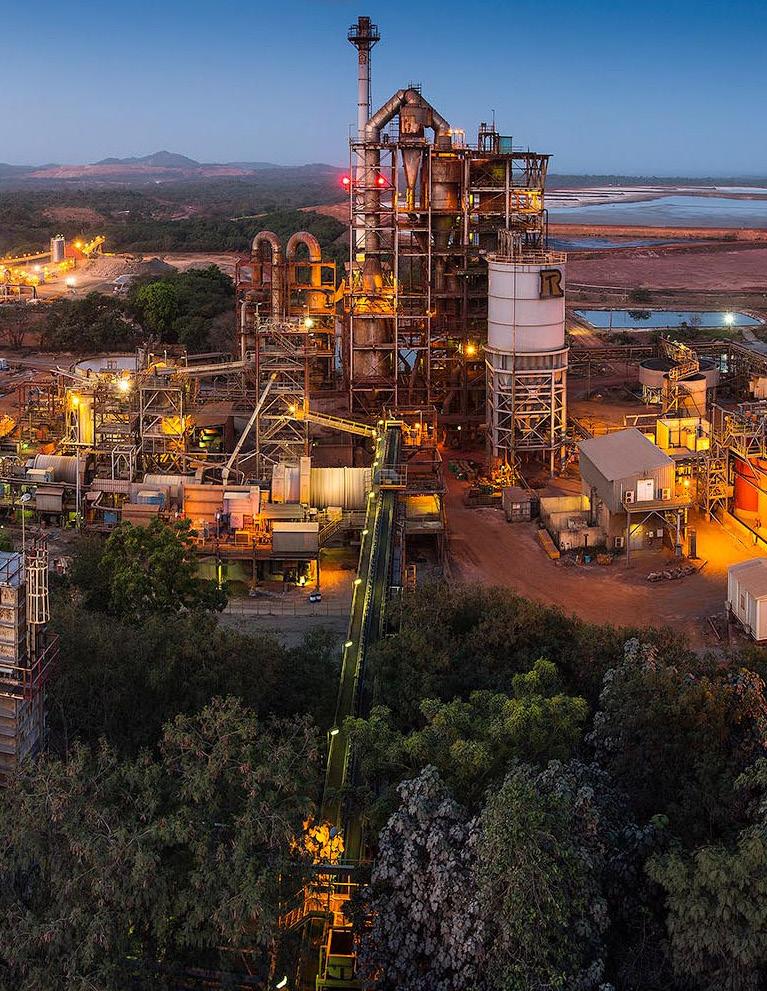
2 minute read
Australian Mines Ltd’s path to carbon neutrality: hydro, solar and electrification
Interview
Australian Mines Limited has committed to becoming 100% carbon-neutral by the end of the year, and will achieve this through a combination of hydro and solar power, mobile electrification and carbon offsetting activities.
Advertisement
In an exclusive interview with Energy and Mines, the company’s Managing Director, Benjamin Bell, revealed that its Sconi nickel and cobalt project, currently under development in northern Queensland, Australia, will be powered by the nearby Kidston hydroelectric and solar plant. Located in a decommissioned gold mine 280 km north of Townsville, the Kidston Pumped Storage Project is led by Genex Power and partly funded by the Australian Renewable Agency (ARENA), and will deliver up to 330 MW of clean power into the grid, and is now in the final phases of construction.
“There’s increased demand for renewable energy up in that region, so the public infrastructure is growing there. We get the benefits of using a grid system, so our cost of production won’t be significantly different whether we use renewable energy or traditional coal-powered energy. There’s a bit more of a CAPEX cost upfront, but the OPEX offsets that,” explained Bell.
In addition to using clean energy for its operations, Sconi will have a solar-powered camp for about 300 workers, and will electrify movements on its site. “Our site is quite compact, so we are looking at ways of reducing the amount of vehicles by replacing trucks with conveyor belts, for example,” he said, adding that the company will be looking at electric options for the vehicles it cannot displace.
Australian Mines Ltd is currently going through a final audit process in collaboration with the Australian government. Results will be published in June, and will include details on the power solution, mine electrification, and the amount of GHG emissions that will have to be offset to achieve carbon neutrality. “We can’t obviously cut all of our carbon emissions, some of it we have to offset through support towards UN programs and the like. But we’re trying to reduce our actual footprint rather than paying to offset it,” points out Bell.

Queensland (stock)
According to him, the main reason for going down the decarbonization path is to maintain coherent values: “We don’t want to be a company that sells into the EV market but doesn’t reflect the same values internally,” he says. “We don’t expect to charge a higher premium, we don’t expect it to make any difference in selling the product. We just think it’s the right thing to do.”
Australian Mines Ltd aims to be one of the world’s cheapest producers of nickel and cobalt sulphates, by refining the metals directly at the mine site to provide a finished product to battery manufacturers for electric vehicles. The company is a member of the Initiative for Responsible Mining (IRMA), and will be certified Carbon-Neutral under the Australian Government’s Climate Active Program. Throughout the current audit process, the company is also negotiating commercial contracts with providers and offtakers. Construction is then expected to begin by the end of 2020, with a two-year build time before operations can start.
The Australian company is the latest mineral supplier to the EV market to make the decision to go 100% carbon-neutral: another example is Quebec’s Nouveau Monde Graphite, which plans to be the world’s first all-electric open-pit mine. In both cases, the proximity to a hydroelectric grid seems to give a significant advantage to the mine’s green ambitions.




